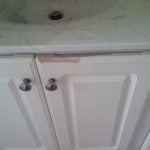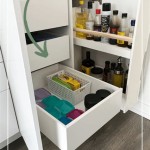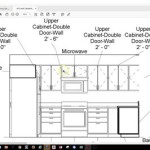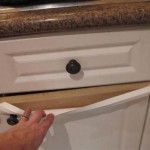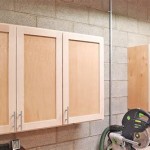Replacement Hinges for Old Kitchen Cabinets
Over time, the hinges on kitchen cabinets can wear out, become loose, or simply lose their sleek appearance. Worn-out hinges can cause doors to sag, making them difficult to open and close. Replacing old cabinet hinges can revitalize the look of your kitchen and improve its functionality. This article will guide you through the process of choosing and installing replacement hinges for old kitchen cabinets.
Types of Cabinet Hinges
There are numerous types of cabinet hinges available, each with its own unique features and benefits. The most common types include:
- European hinges: These are known for their sleek, modern design and hidden installation. They offer a wide range of adjustment options, making them very versatile.
- Full overlay hinges: This type of hinge is commonly used on frameless cabinets, where the door covers the entire cabinet face.
- Semi-overlay hinges: These hinges are often used on framed cabinets where the door extends over the cabinet face by about 1/8 inch.
- Inset hinges: These hinges are used on inset cabinets, where the door sits flush with the cabinet face, providing a seamless appearance.
- Butt hinges: These traditional hinges are visible and typically used on rustic or traditional cabinets.
When choosing replacement hinges, it's crucial to consider the type of cabinet you have and the aesthetic you're aiming for. The type of hinge will determine the overall appearance and functionality of your cabinet doors.
Choosing the Right Replacement Hinges
Replacing cabinet hinges is a relatively straightforward process, but it requires careful consideration to ensure proper functionality and a seamless blend with your existing cabinetry. Here are some key factors to keep in mind when selecting replacement hinges:
- Hinge type: As mentioned earlier, the type of hinge will depend on the style of your cabinets and your desired look.
- Hinge size and mounting hole spacing: Measure the existing hinge's size and mounting hole spacing to ensure the replacement hinges are compatible.
- Hinge material: Hinges are typically made of metal, such as brass, nickel, or steel. Choose a material that complements the existing hardware and finish on your cabinets.
- Hinge finish: The finish of the hinge should match or complement the finish of your other kitchen hardware.
- Hinge functionality: Consider features like self-closing mechanisms, soft-close features, and adjustable hinges, which can enhance ease of use and longevity.
It is advisable to consult with a professional or visit a reputable hardware store for guidance on selecting the right replacement hinges for your cabinets.
Installing Replacement Hinges
Once you have the right replacement hinges, you can proceed with the installation. Here's a general guide:
1. Removing Old Hinges
- Open the cabinet door and locate the screws holding the hinge in place.
- Use a screwdriver to remove the screws and carefully detach the old hinge from the cabinet door and the cabinet frame.
2. Installing New Hinges
- Align the new hinge with the mounting holes on the cabinet door and cabinet frame.
- Use the supplied screws to attach the new hinge to both the door and the frame.
- Tighten the screws securely, but avoid overtightening, which can damage the wood.
3. Adjusting Hinges
Most modern hinges offer adjustment features for fine-tuning the door's position and alignment. This includes:
- Side adjustment: Allows you to move the door left or right.
- Depth adjustment: Allows you to adjust the door's distance from the cabinet frame.
- Height adjustment: Allows you to adjust the door's vertical position.
Refer to the hinge manufacturer's instructions for specific adjustment procedures.
For complex installation or if you are unsure about the process, it is recommended to consult with a professional cabinet installer.
Replacing old kitchen cabinet hinges can significantly enhance the overall aesthetics and functionality of your kitchen. By carefully selecting the right hinges and following proper installation procedures, you can ensure that your cabinets function smoothly and look their best for years to come.

Replacing Outdated Cabinet Hinges The Hardware Hut Kitchen Cabinets

Replacing Cabinet Hinges With Overlay Self Closing The Palette Muse

How To Replace Cabinet Hinges The Home Depot

Wood Mode Cabinet Hinge And Adjustment Better Kitchens

How To Replace Cabinet Hinges A Diy Tutorial For Beginners

Replacing Outdated Cabinet Hinges The Hardware Hut

Choosing The Best Cabinet Hinges To Replace Your Old Ones

Installing New Hinges On Old Cabinets Problem Solving

Kitchen Hinge Fix

How To Install Hinges On Cabinets Young House Love
Related Posts


